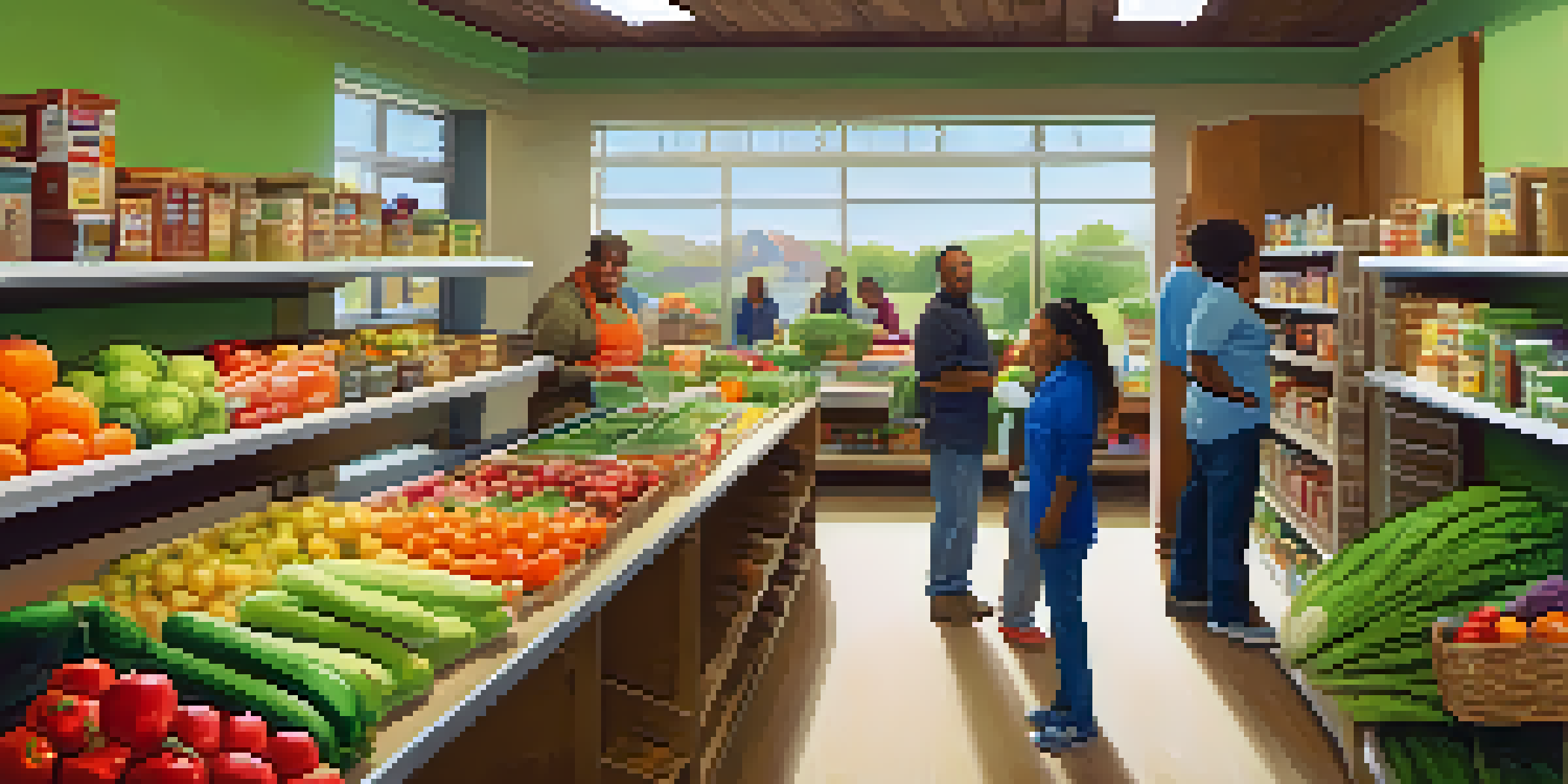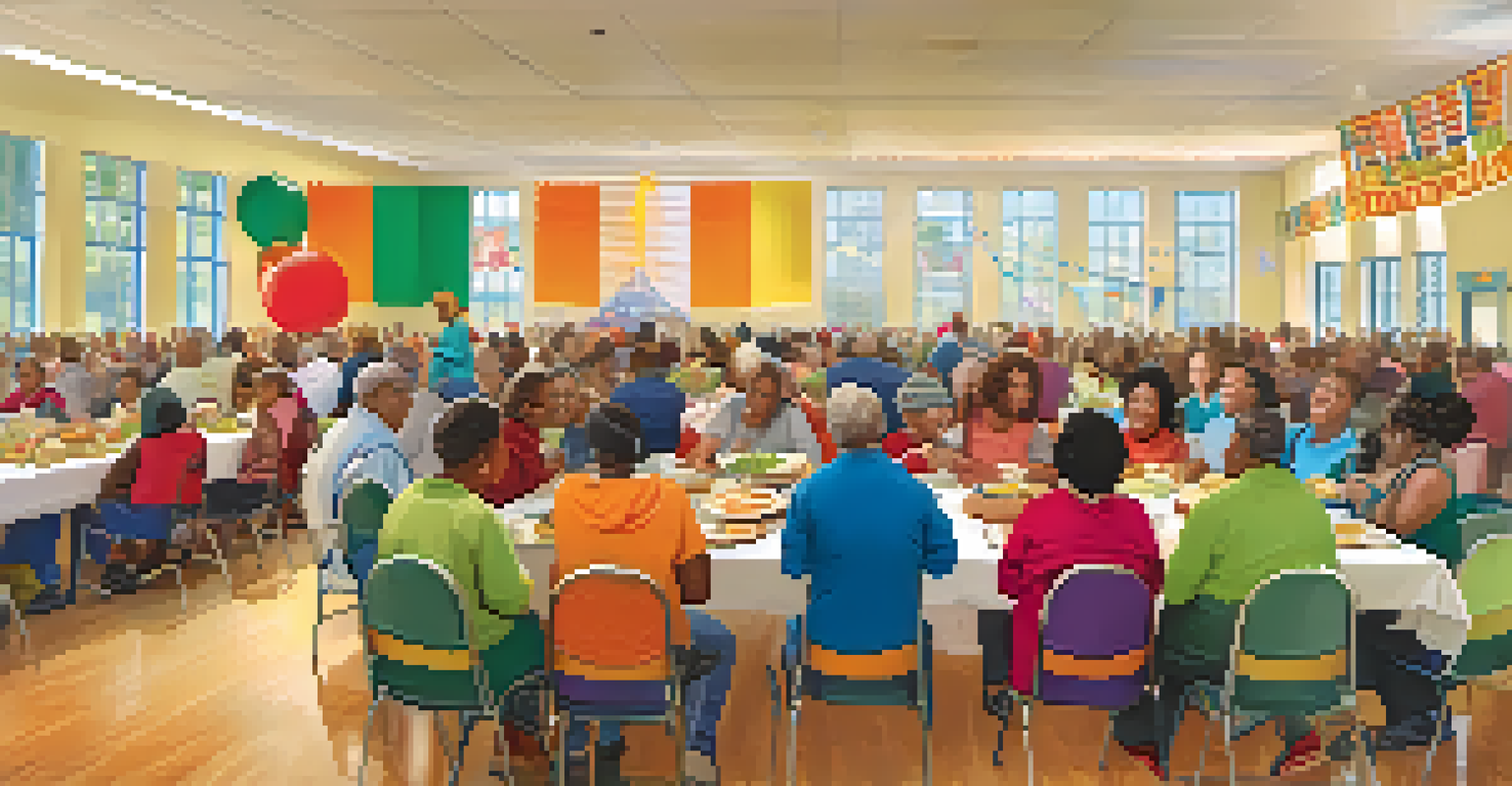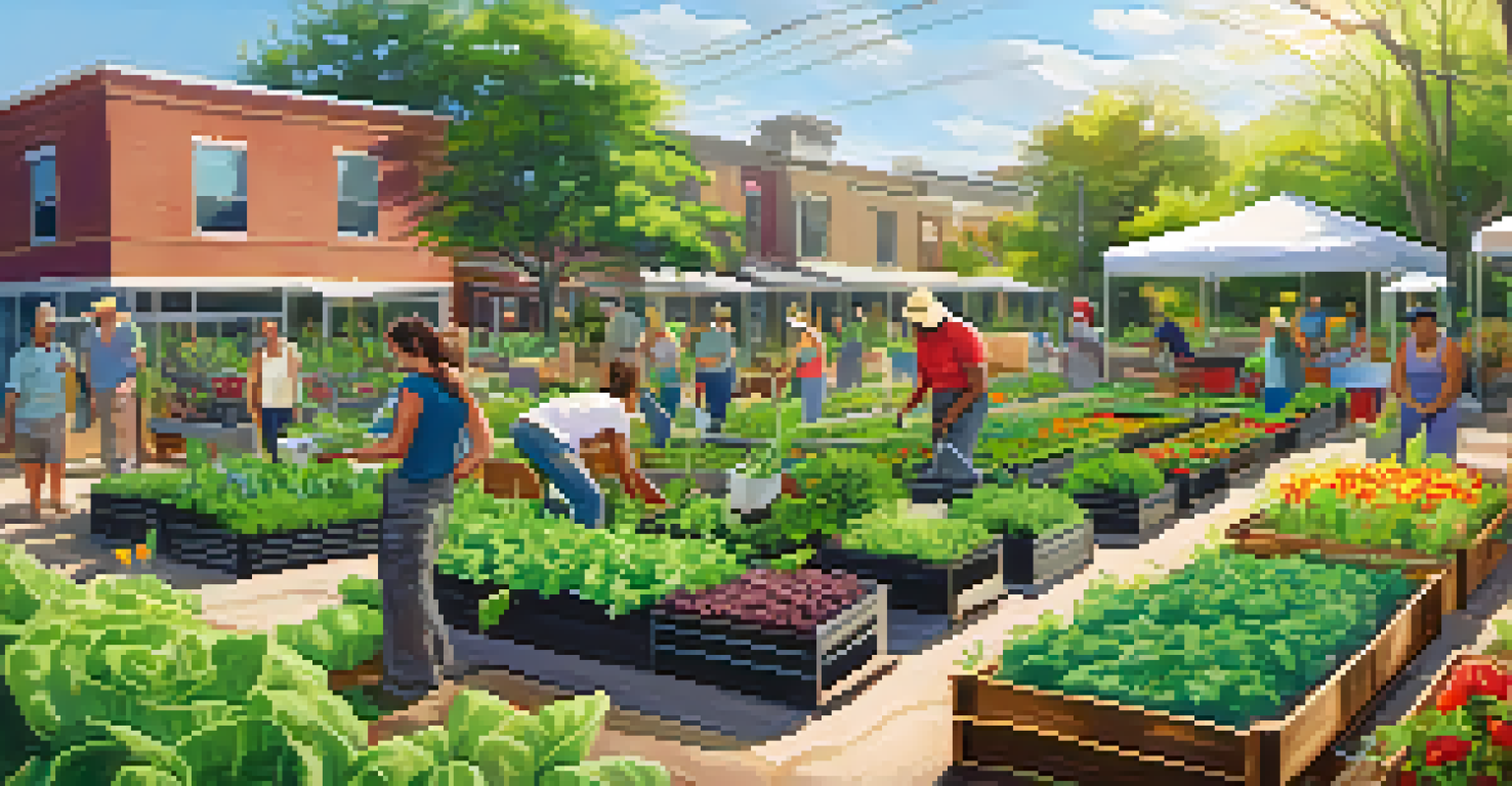How Local Charities Address Food Insecurity in Austin

Understanding Food Insecurity in Austin's Community
Food insecurity is a pressing issue in Austin, affecting many families. It is defined as the lack of reliable access to sufficient quantities of affordable nutritious food. As the city grows, so does the challenge of ensuring that all residents have consistent access to food, highlighting the importance of community support.
Food insecurity is not just about hunger; it is a complex issue that affects health, education, and overall well-being.
Organizations like the Central Texas Food Bank play a crucial role in addressing this issue. They not only distribute food but also work to educate the public about nutrition and healthy eating. This dual approach helps to alleviate immediate hunger while also fostering long-term health benefits.
Moreover, food insecurity often intersects with other social issues, such as poverty and housing instability. Local charities are aware of these complexities and tailor their services to meet the diverse needs of the community, ensuring that help reaches those who need it most.
Community Food Pantries: Lifelines for Families
Community food pantries serve as essential resources for families facing food insecurity. These pantries provide free groceries, allowing families to stretch their budgets further. In Austin, many pantries are supported by local churches and nonprofits, creating a network of support throughout the city.

For example, the Austin Area Urban League operates a food pantry that serves hundreds of families each month. They not only distribute food but also help with other essential services like job training and education. This holistic approach empowers families to improve their overall situation, not just their immediate hunger.
Food Insecurity Affects Many Families
In Austin, food insecurity is a significant issue that impacts numerous families, emphasizing the need for community support and resources.
In addition to traditional food pantries, some organizations offer mobile pantries that bring food directly to underserved neighborhoods. This flexibility ensures that those who may not have transportation can still receive the help they need, illustrating the commitment of local charities to meet community needs.
Meal Programs: Nourishing Bodies and Minds
Meal programs, often run by local charities, provide hot, nutritious meals to individuals and families in need. These programs are especially crucial for children who rely on school meals during the week. Organizations like Meals on Wheels Central Texas ensure that seniors and other vulnerable populations continue to receive meals at home.
Volunteering is not just about giving back; it’s about creating a community where every person feels valued and supported.
The impact of these meal programs goes beyond just physical nourishment; they also foster a sense of community. Many meal initiatives encourage social interaction, allowing recipients to connect with others. This sense of belonging can significantly improve mental well-being, especially during challenging times.
Additionally, some meal programs focus on education, teaching participants about cooking and nutrition. By equipping individuals with skills to prepare healthy meals, these programs help combat food insecurity in the long run, creating a ripple effect of positive change.
Collaboration Among Local Charities and Organizations
Collaboration is key in the fight against food insecurity, and Austin's local charities exemplify this principle. By partnering with each other, these organizations can share resources, information, and best practices. This cooperative spirit enhances their ability to serve the community effectively.
For instance, the Central Texas Food Bank collaborates with local restaurants, grocery stores, and farms to source food donations. This not only reduces food waste but also ensures that fresh, healthy options are available to those in need. Such partnerships amplify the impact of each charity's efforts.
Community Pantries Offer Essential Aid
Local food pantries provide vital assistance to families in need by distributing groceries and offering additional support services.
Moreover, collaborative events like food drives and awareness campaigns help to engage the community at large. By rallying support from local businesses and residents, these initiatives foster a sense of shared responsibility in addressing food insecurity. Together, they create a stronger, more resilient community.
Advocacy: Raising Awareness About Food Insecurity
Local charities in Austin not only provide food but also engage in advocacy to raise awareness about food insecurity. They work to inform the public and policymakers about the challenges faced by those who are food insecure. This advocacy is crucial for creating systemic change and improving access to food.
Through campaigns, workshops, and community events, these organizations educate residents about the importance of addressing food insecurity. They also encourage community members to advocate for policies that support food access, like increasing funding for food assistance programs. This grassroots approach empowers individuals to take action.
Additionally, local charities often collaborate with schools and corporations to promote awareness. By involving a diverse array of stakeholders, they help to create a culture of understanding and support, ultimately leading to more comprehensive solutions to food insecurity.
The Role of Volunteers in Food Distribution Efforts
Volunteers are the backbone of many local charities addressing food insecurity in Austin. Their hard work and dedication enable these organizations to operate efficiently and reach more people in need. From sorting food donations to distributing meals, volunteers play a vital role in the day-to-day operations.
For example, the Central Texas Food Bank relies heavily on volunteers to help sort and package food items. This not only increases the efficiency of food distribution but also fosters a sense of community engagement. Many volunteers find fulfillment in giving back and making a tangible difference in the lives of others.
Volunteers Drive Food Distribution Efforts
The dedication of volunteers is crucial for the success of local charities, enabling efficient food distribution and fostering community engagement.
Moreover, volunteering can help raise awareness about food insecurity. When individuals participate in these efforts, they often gain a deeper understanding of the challenges faced by those who are food insecure. This newfound awareness can inspire them to advocate for change and support local charities in other ways.
Future Directions: Innovations in Addressing Food Insecurity
As food insecurity continues to be a challenge in Austin, local charities are exploring innovative solutions. Technology is playing a significant role in these efforts, with apps and platforms that connect food donors with organizations in need. This streamlining of resources allows for quicker and more efficient food distribution.
Moreover, some organizations are experimenting with urban agriculture initiatives, teaching community members how to grow their own food. These programs not only provide immediate access to fresh produce but also empower individuals to take control of their food sources. This self-sufficiency can significantly reduce food insecurity in the long run.

Additionally, there is a growing emphasis on sustainability within local charities. Many are adopting practices that minimize food waste and promote environmental stewardship. By addressing food insecurity through a sustainable lens, these organizations are working towards a healthier community and planet.